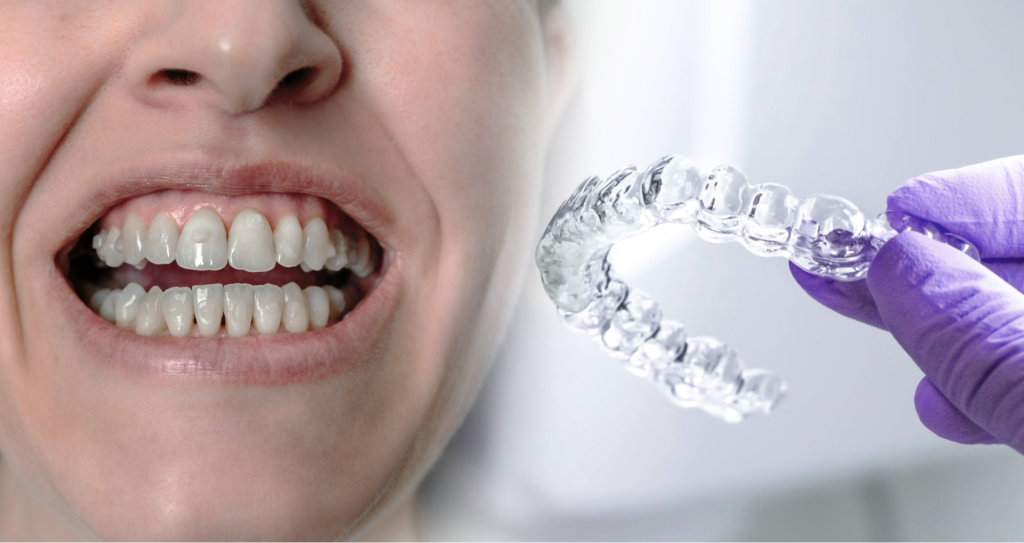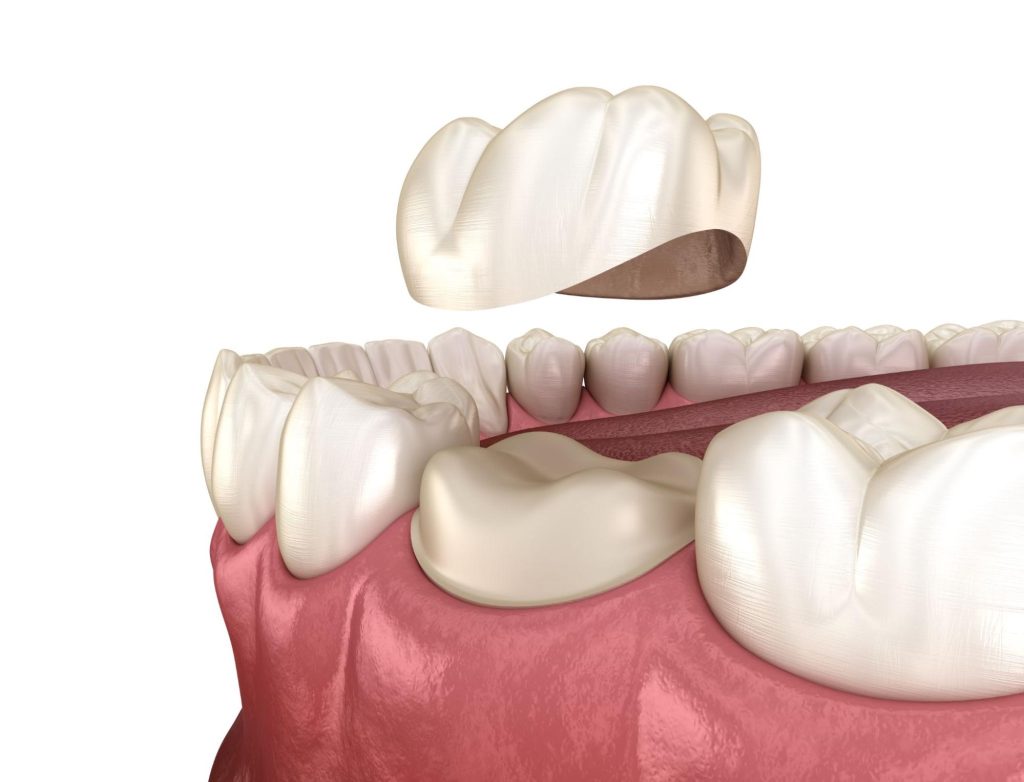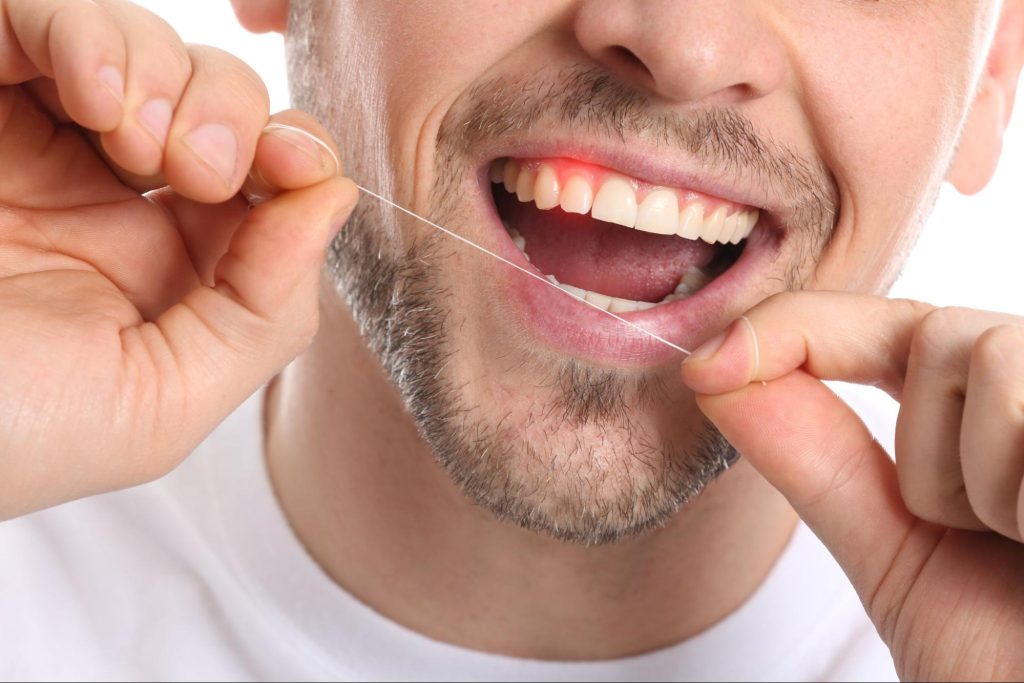Many people turn towards mouthguards to help combat Obstructive Sleep Apnoea (OSA). Dental mouthguards, also known as Mandibular Advancement Splints (MAS) or bite splints, are quite like a sports mouthguard that you wear at night. They play a key role in preventing mild to moderate cases of OSA. Dental mouthguards are worn on the lower jaw to help bring it forward. This action provides more space for air to pass while you sleep. Your dentist can specifically design a custom mouthguard for you to provide maximum comfort and reliability.
What Is Sleep Apnoea?
Sleep apnoea is a condition that causes a person to periodically stop breathing while asleep. OSA is the most common form of sleep apnoea and is caused by the collapse of the upper airways in the throat. Sleep apnoea affects the quality of your sleep and, therefore, can affect your daytime performance. If you believe you suffer from sleep apnoea, you can be tested and find the proper treatment, such as wearing a custom mouthguard at night to protect yourself and get your sleep back on track.
Common Signs and Symptoms of Sleep Apnoea
Sleep apnoea is a relatively common chronic condition that affects about one in 10 people in Australia. Sleep apnoea may be more prevalent in certain populations: men, women during menopause, heavy smokers, and the obese. This sleep disorder can also be hereditary or due to craniofacial formation. About 10% of people who have sleep apnoea are not even aware they have it. This is because it happens while you are asleep. Some signs that you have sleep apnea may be: snoring or gasping during sleep, waking up with a dry mouth, irritability, insomnia, and sleepiness. Sleep apnoea could be the cause of cognitive dysfunctions and impaired work performance. Over time, it can create other health problems, such as severe hypertension, and can greatly affect your cardiovascular and respiratory systems.
Reduced or Absent Breathing
Reduced or absent breathing is the main symptom of sleep apnoea. If you wake up suddenly at night gasping for air, you may suffer from sleep apnoea. In some cases, heavy snoring at night that is loud enough to keep those around you awake is also a common sign of sleep apnoea, though it is not a telltale sign.
Sleepiness
Sleepiness is a key symptom in those who suffer from sleep apnoea. This is because OSA causes you to wake up continuously through the night, even during your important rapid eye movement (REM) cycles. If your sleepiness goes on to prevent you from your normal daytime activities, you may want to be tested for sleep apnoea and start getting treated to help you get the sleep you need.
Waking Up with a Dry Mouth
Another symptom and sign that you could have sleep apnea is the appearance of dry mouth upon waking up. Those with sleep apnoea were two times more likely to experience dry mouth than regular snorers. This is due to spending more time with an open mouth during sleep.
Insomnia
Insomnia and sleep apnoea are associated with similar health consequences, such as sleep disturbances, cognitive dysfunctions, impaired work performance, and overall adverse effects on the quality of life. When they exist together, these health issues can create even greater disturbances compared to those who suffer from only one of the disorders.
Irritability
Irritability is one of the top side effects of sleep apnoea. When you lack the sleep your body and mind needs, your cognitive functions decrease and lead to higher stress and irritability.
Treatments of Sleep Apnoea
There are many treatments for OSA. Because OSA is more prevalent in the obese, losing weight can be an effective treatment and an important factor in reducing severe cases. There are surgical procedures that can also reduce snoring. The most common treatment for moderate to severe OSA is a continuous positive air pressure (CPAP). CPAP is a machine you wear over your mouth and nose every time you sleep. Another common and less invasive option is to wear a customized mouthguard at night.
How Do Mouthguards Help With Sleep Apnoea?
A mouthguard’s primary function is to push your lower jaw forward while you sleep. This forward position prevents the upper airway in your throat from collapsing, giving you the proper room to breathe freely and without interruption throughout the night.
Start your treatment by speaking with a specialist respiratory physician to arrange a sleep study. The diagnosis from this test will determine the severity of your OSA. In most mild to moderate cases, you may be able to treat your OSA with a mouthguard. It is best to speak with a specialist about the right option for you.
Summary
If you decide that a dental mouthguard is the right option, your dentist can help get you fit for a customized mouthguard. A custom mouthguard is important in treating OSA for maximizing comfort and effectiveness. Creating a custom mouthguard takes about two to three weeks. Mouthguards come with a screw adjustment for further fine-tuning of the position in a few weeks.
With Mosman Fine Dental, your family’s health is in good hands. Contact us today to make an appointment to start the process of creating a customized mouthguard so you can get the sleep you deserve. Check out our latest blog posts to stay up to date on dental care.



